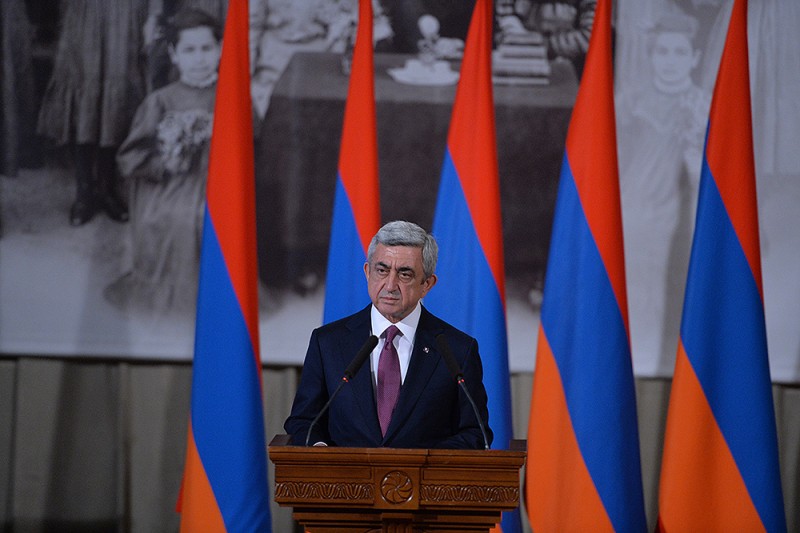International Conference on Armenian Genocide Opens in Yerevan

President Serzh Sarkisian issued an address to the participants of the international conference (Source: Public Radio of Armenia)
YEREVAN (Panorama)—An international conference entitled “The Armenian Genocide-100: From Recognition to Reparation” opened at the National Academy of Sciences of Armenia today.
The conference participants will discuss the Armenian Genocide, including its history, theory, memory, and geopolitics; legal, political and socio-political problems of reparation and elimination of the genocide’s consequences; reflection of the Armenian Genocide in literature and the arts; and cultural genocide.
The conference has been organized by the National Academy of Sciences of Armenia and Yerevan State University. It has brought together over 100 participants from Armenia, Germany, the U.S., Austria, Russia, Australia, Ukraine, Canada, Poland, and Hungary.
Armenian President Serzh Sarkisian sent an address to the participants of the conference, according to the presidential press service.
“The French writer and philanthropist Anatole France said back in 1916: ‘Armenia is dying, but it will survive. The little blood that is left is precious blood that will give birth to a heroic generation. A nation that does not want to die, does not die.’ Yes, our nation did not die—it survived, re-established its statehood and today demands justice, which implies serious preparatory work, including research,” Sarkisian’s message said.
“It is no accident that scientific and research conferences have a unique place among the events dedicated to the 100th anniversary of the Armenian Genocide. I think the conference opening today will be notable for the fact that, while being entitled ‘From Recognition to Reparation’ and dedicated to the further studies of a large scope of issues on the Armenian Genocide, it simultaneously pays attention to the elimination of the consequences of that gravest crime against humanity, and to reparation issues,” the presidential address said in particular.
